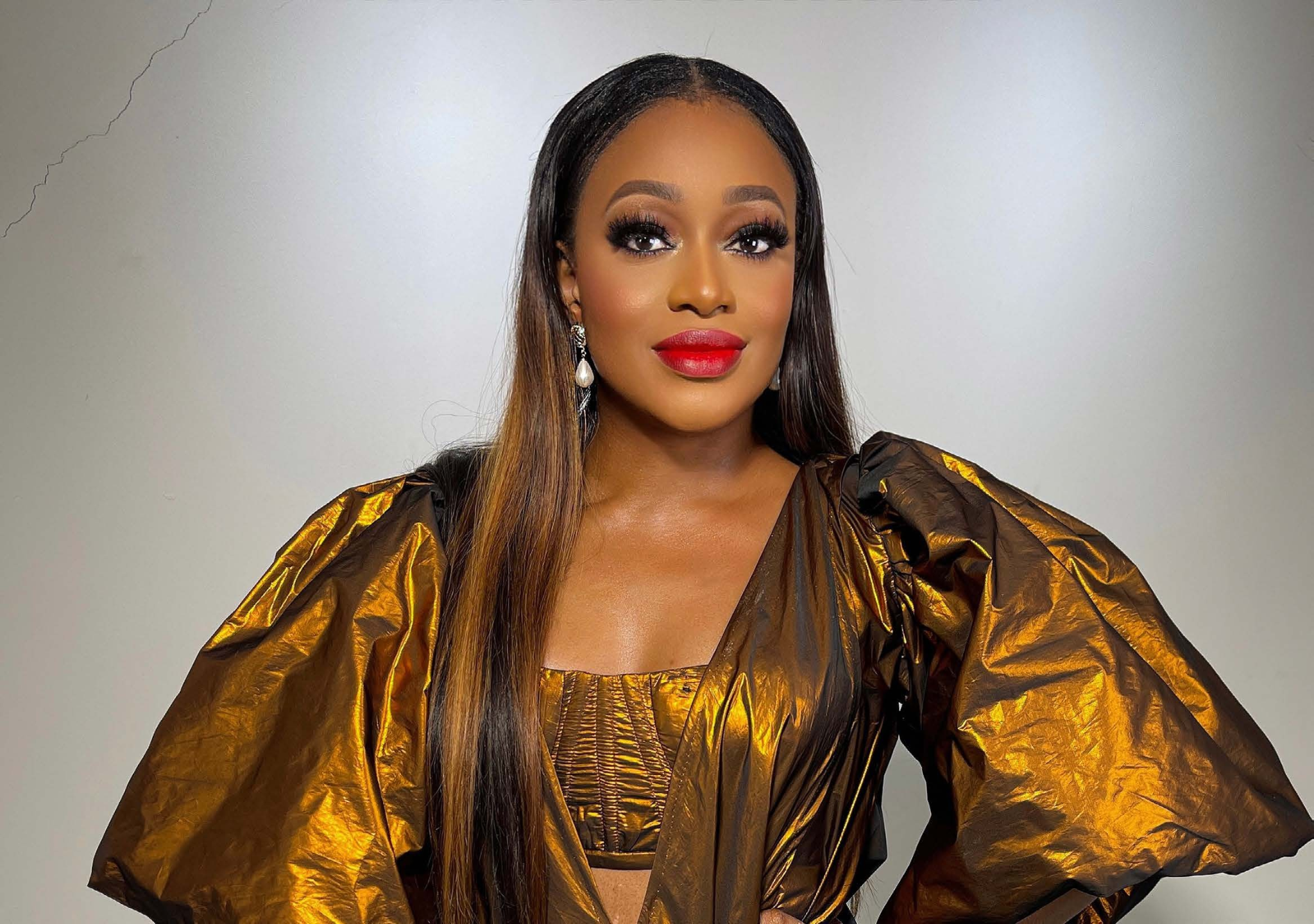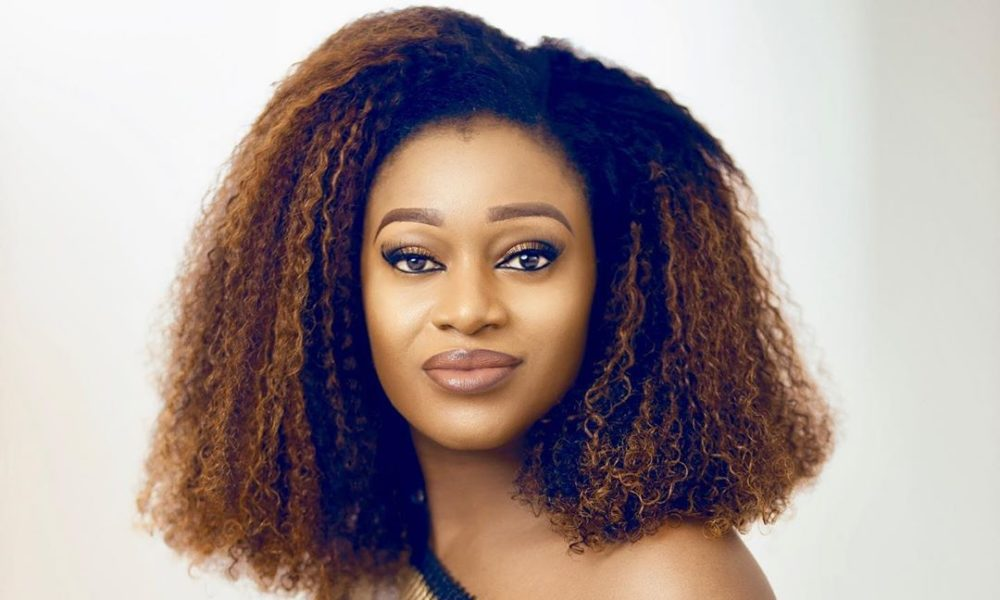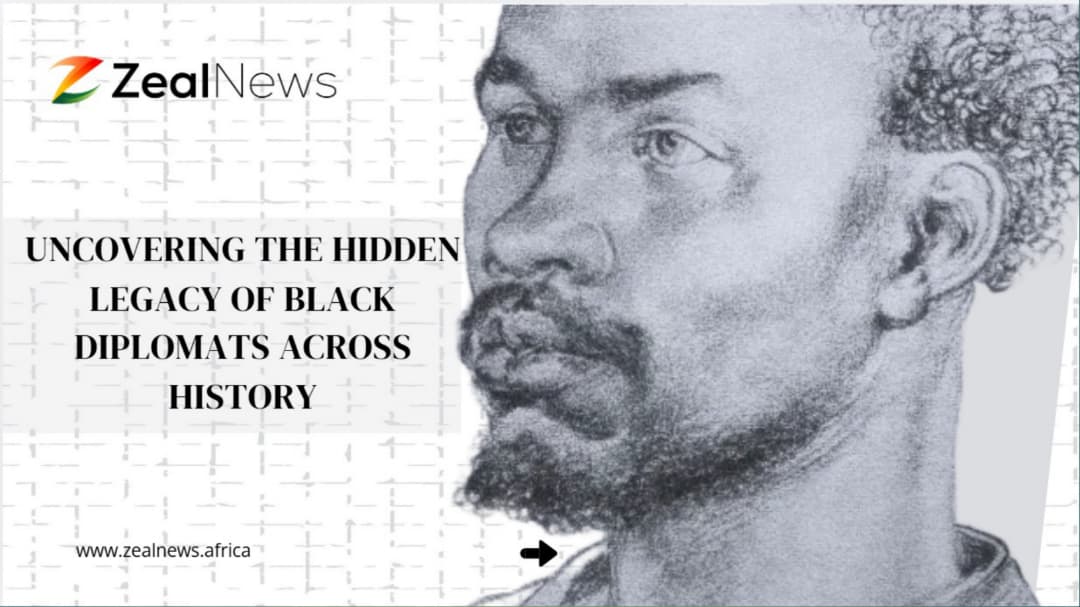Lanre Da Silva Ajayi: The Couture Legend

Lanre Da Silva Ajayi, often referred to simply as LDA, is a name that resonates deeply in the world of Nigerian and African high fashion. She is not the designer who chases trends or makes noise for the sake of headlines. Instead, Lanre builds with intention, crafting elegance that feels both rooted in history and undeniably modern. Over the years, her work has become a kind of storytelling, garments that carry memory, identity, and a refined vision of Africa.
Born in Lagos in 1978, Lanre grew up in a family that carried a sense of public responsibility. Her father, Sir Leo Babarinde Da Silva, served in government, a backdrop that likely shaped the seriousness and discipline she would bring to her work later.
Unlike many fashion designers who begin their careers with formal art school training, Lanre’s path was different. She pursued business in the UK, earning a Bachelor’s in Business Administration from Coventry University and later a Master’s in Finance from University of Leicester. That choice was deliberate: she understood early on that creativity alone doesn’t sustain a luxury brand, you need structure, vision, and financial acumen.
When she returned to Lagos in the mid-2000s, she carried more than design dreams: she carried a business mindset calibrated for longevity.
The Birth of LDA — A House of Stories
Lanre Da Silva officially launched her label in 2005, calling it simply Lanre Da Silva (LDA). From the very beginning, the brand was multidimensional, not just couture gowns, but ready-to-wear lines, jewelry, and even hairpieces.

Her design signature soon became unmistakable: metallic fabrics, delicate lace overlays, and African-inspired patterns referenced from historical aesthetics especially eras like the 1940s and 1800s. The result feels both nostalgic and forward-looking, like a conversation between past and present.
This blend isn’t accidental. Lanre has said in past interviews that she draws from vintage couture but always with a modern twist. Her dresses are not mere showpieces; they are emotional architecture, garments that echo tradition while demanding to be worn in today’s world.
Long before her recent anniversary, LDA was already charting global waters. The brand has graced New York Fashion Week, and its creations have been seen on international runways. In a particularly bold moment, Lanre became one of the few African designers to have her pieces stocked at Dolce & Gabbana’s Concept Spiga 2 store in Milan, a milestone that underscored her relevance in the luxury fashion conversation.
Her work has also been recognized by global institutions. In 2012, she was invited to join the United Nations Fashion Development Project, which supports the development of luxury fashion on the continent. That same year, her label was featured in L’Uomo Vogue in an issue titled “Re‑branding Africa.”
Over the years, publications like Vogue Italia and L’Uomo Vogue have told her story, pointing to how Lanre bridges heritage and elegance in ways few others can. Her international visibility makes her not just a Nigerian designer, but a global ambassador of African couture.
To wear LDA is to engage with a particular kind of elegance, one steeped in memory, strength, and craft. Lanre’s approach isn’t about fleeting trends; it’s about legacy. She uses Metallic & Lace, Heritage in Print, Historical Silhouettes, Wearable Art to bring memories in materials.
Influence, Mentorship & Legacy
Beyond her designs, Lanre has always valued community and legacy. She’s been an active mentor, helping younger creatives find their footing in a tough industry. In 2025, she relaunched her mentorship program, Runway Renaissance, selecting three emerging designers who prioritize sustainability and craftsmanship.
That relaunch came with her 20-year mark, but it’s more than a celebration, it’s strategic. She’s investing not only in her brand but also in building a deeper ecosystem for African fashion.
Her influence also extends into recognition. In 2017, she was named an influencer by the ELOY Awards (Exquisite Ladies of the Year), alongside other high-profile women. In 2025, she received a nomination for “Creative Force in Fashion” at the MOI Awards, a nod to her decades of work and creative leadership.
These are not cosmetic honors; they reflect her real standing in the industry. She is respected not just for her aesthetic, but for her dedication, discipline, and commitment to the craft.

The 20-Year Milestone: A Quiet Celebration
While the anniversary is important, Lanre didn’t make it merely a flashy party. According to reporting, she marked her 20 years in fashion with a runway show in Lagos on November 16, 2025, unveiling her Spring/Summer 2026 “Anniversary Collection.”
That collection carried everything she stands for: sculptural sleeves, flowing movement, intricate detail, and a thoughtful colour palette. The colours themselves held symbolism, emerald green for growth, gold for achievement, and sunlit yellow for joy. The fabrics included a fusion of traditional adire prints with luxurious, modern textures like Chantilly lace.
It was a celebration, but also a reaffirmation. The event was backed by heavyweight partners like the Lagos State Ministry of Tourism, Arts & Culture, Johnnie Walker Blue Label, Standard Chartered Bank, Heineken, and Bank of Industry.
As Lanre put it in her own words: “Clothes hold memories … they are silent witnesses to who we are and who we’re becoming.” It felt less like she was patting herself on the back and more like she was honoring a decades-long conversation she’s having with fashion, identity, and legacy.
The Challenges She Navigates
Running a high-fashion brand in Nigeria is not easy, especially one that cares about quality, craftsmanship, and heritage. Lanre has often spoken about the challenges: sourcing materials, working with local artisans, and balancing global aspiration with local reality.
Local manufacturing is often more costly, and the talent pool of highly skilled tailors and beaders is limited. But she has leaned into this, rather than outsourced her vision entirely. By nurturing local artisans and keeping part of her production grounded in Nigeria, she preserves both the soul of her craft and the integrity of her brand.
This approach, one anchored in real craft, not mass production, is what gives LDA its depth. It’s harder, yes. But for Lanre, it’s worth it.
Lanre’s work has not just stayed in the atelier or on the runway. Her gowns, jewelry, and statement pieces are worn by influential figures. For instance, artists like Tiwa Savage and Yemi Alade have chosen LDA for major events. Her pieces strike a balance: glamorous enough for red carpets, but grounded enough in elegance and history.
She is recognized in Nigerian media as a couture legend, described by Vanguard Allure as “Queen of Vintage”, a title that speaks to her timeless sensibility, her mastery of lace and metallic detail, and her ability to make regal fashion feel at home in Lagos.
When a designer becomes a go-to for public figures and cultural icons, it suggests more than popularity: it means her work resonates with identity, aspiration, and beauty in ways that endure.
Lanre Da Silva Ajayi’s story matters because she is not just making dresses, she is weaving legacy.
You may also like...
Ndidi's Besiktas Revelation: Why He Chose Turkey Over Man Utd Dreams

Super Eagles midfielder Wilfred Ndidi explained his decision to join Besiktas, citing the club's appealing project, stro...
Tom Hardy Returns! Venom Roars Back to the Big Screen in New Movie!

Two years after its last cinematic outing, Venom is set to return in an animated feature film from Sony Pictures Animati...
Marvel Shakes Up Spider-Verse with Nicolas Cage's Groundbreaking New Series!

Nicolas Cage is set to star as Ben Reilly in the upcoming live-action 'Spider-Noir' series on Prime Video, moving beyond...
Bad Bunny's 'DtMF' Dominates Hot 100 with Chart-Topping Power!

A recent 'Ask Billboard' mailbag delves into Hot 100 chart specifics, featuring Bad Bunny's "DtMF" and Ella Langley's "C...
Shakira Stuns Mexico City with Massive Free Concert Announcement!

Shakira is set to conclude her historic Mexican tour trek with a free concert at Mexico City's iconic Zócalo on March 1,...
Glen Powell Reveals His Unexpected Favorite Christopher Nolan Film

A24's dark comedy "How to Make a Killing" is hitting theaters, starring Glen Powell, Topher Grace, and Jessica Henwick. ...
Wizkid & Pharrell Set New Male Style Standard in Leather and Satin Showdown

Wizkid and Pharrell Williams have sparked widespread speculation with a new, cryptic Instagram post. While the possibili...
Victor Osimhen Unveils 'A Prayer From the Gutter', Inspiring Millions with His Journey

Nigerian football star Victor Osimhen shares his deeply personal journey from the poverty-stricken Olusosun landfill in ...






